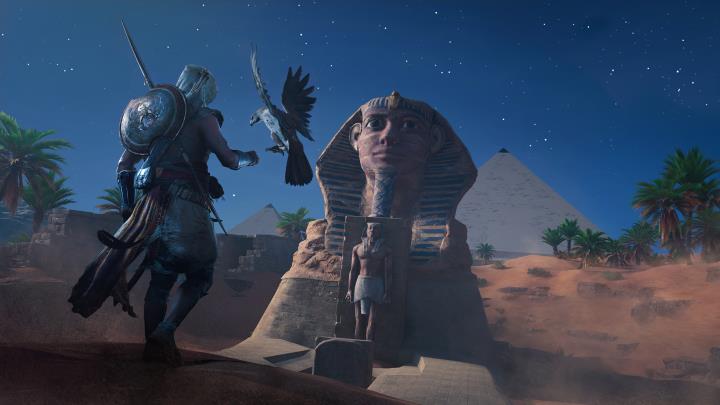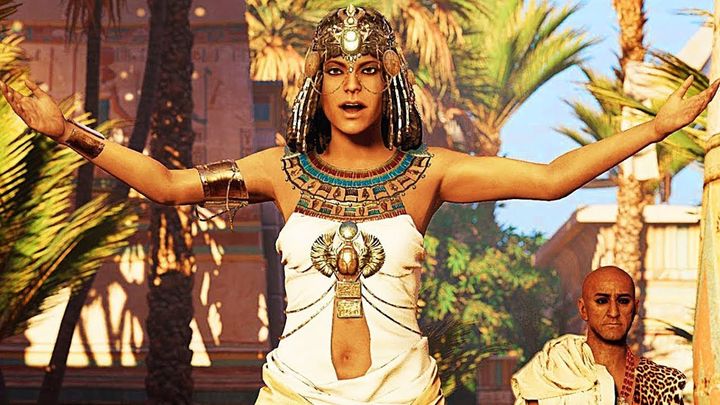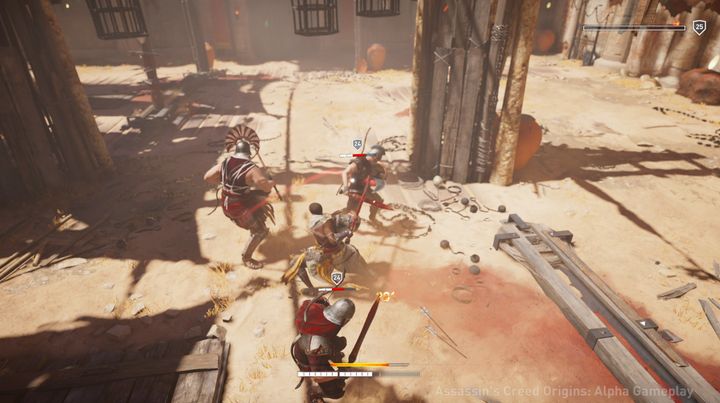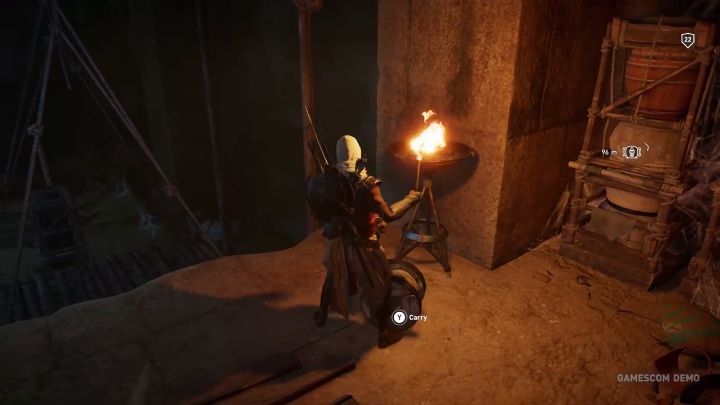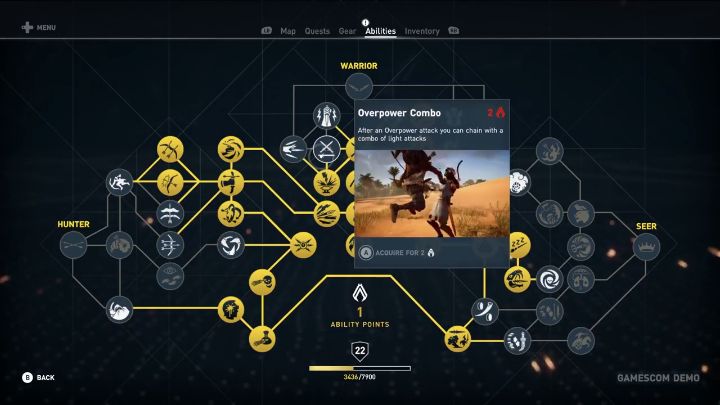It’s been a long time coming, but Assassin’s Creed fans will soon be able to enjoy another entry in the series after Ubisoft decided not to release a major game in the franchise in 2016. Of course, given that 2015’s Assassin’s Creed Syndicate simply wasn’t that great, and that its predecessor Assassin’s Creed Unity is still remembered as one of the buggiest games in years, will Assassin’s Creed Origins turn out to be a return to form for the series?
One thing’s for sure, though, and is that Assassin’s Creed Origins’ looks like it could be one of the prettiest games to hit shelves this year judging by the trailers and gameplay videos we have seen thus far. And while Syndicate’s industrial London was a good setting, Origins’ ancient Egypt could end up being one of the most interesting settings yet for an Assassin’s Creed game. Plus, the revamped combat and explorable tombs might make this one of the most enjoyable games of the year too.
Assassin’s Creed Origins’ director Ashraf Ismail, who’s been busily at work with is team at Ubisoft to deliver what could end up being the best Assassin’s Creed game to date, recently spoke to gaming website Gamereactor, explaining what makes this latest entry in the Assassin’s Creed franchise special.
One thing that has made playing through the Assassin’s Creed games over the years a great experience has been the game’s great characters, and the stories they are involved in. Ismail said that Ubisoft is trying to represent historical characters like Cleopatra and Caesar in balanced way, taking into account that these are real people with strengths and weaknesses, but also bearing in mind how unique people like Cleopatra were.
“These were incredible people. I mean, at this point Cleopatra was the richest person… or eventually she will soon be the richest person in the world. She was the pharaoh of Egypt. Caesar had the power of Rome behind him… For those people to be in those positions – they are quite epic”, said Assassin’s Creed Origins game director.
The same goes for the game’s protagonist Bayek, who’s hardly a unidimensional character. Actually, he’s a pretty complex guy as Origins’ game director made clear in the interview, and someone whom you will get to know pretty well over the course of the game.
“Bayek, you know, what I’ll say about him is that… he has a ton of emotions, we wanted a character who was, let’s say, representing ancient Egypt”, said Ismail. “So if we can embody ancient Egypt physically, it’s Bayek. And that means that yes, sometimes he can be harsh and cold. At other times he’s going to be the most loving, wonderful person you can meet…”, added Origins’ game director.
One way players will get to know more about Bayek in the game is through side quests, which sometimes deviate from the game’s serious tone and offer a more humorous experience, also proving Origins’ protagonist can be quite charitable, as in one quest in which he sets out to help out a boy who’s having trouble with a group of bandits.
Of course, Bayek will be dealing with plenty of enemies in Assassin’s Creed Origins, so it’s a good thing that Ubisoft has revamped Assassin’s Creed’s combat engine, offering more dynamic and nuanced combat than before.
“When we focused on combat what we wanted was a combat system that was dynamic, versatile, highly impactful… But something that also asks for gameplay depth, something that had a longer learning curve, something that allows to boss fights. At the same time, we knew we had horseback, we knew we had riding camels and chariots and boats. We knew we had the bow. So, we knew what we had to play with”, said Ismail.
Origins’ game director also explained how combat will be more dynamic and epic than before, giving the example of how a fight can begin in a village setting, for instance, and then transition seamlessly to the exterior with you continuing the fight on a mount or chariot, animals joining the fight, and dealing with attackers who might now be on horseback and wielding other weapons such as bows. Ashraf Ismail also spoke about how the control mechanism will be seamless and feel natural and intuitive regardless of whether you are riding a mount, on a chariot or a boat.
Another aspect of Origins and earlier Assassin’s Creed games are the tombs. These are particularly important in the game’s ancient Egyptian setting, in which there were pyramids, temples and other religious buildings all over the place. And one of Ubisoft’s goals when it came to delivering a truly authentic Egyptian experience was to be true to the real-life architecture of buildings featured in the game, such as the Giza Pyramids.
“So, for example, the Great Pyramid – the pyramid of Khufu – people will see that the interiors, the tunnels, the chambers, the rooms are really based off of the real thing. We tried to represent it as authentically as possible. Of course, we have our own lore, we add the chambers that have not been found yet… You know, we play with that”, said Origins’ director.
And given the tombs are a more linear experience in Assassin’s Creed Origins, or a “crafted experience” as Ismail says in the interview, these feature plenty of hidden surprises, such as secrets and puzzles for you to deal with.
Origins’ game director also went on to explain how this game improves on Assassin’s Creed IV: Black Flag (which Ashraf Ismail also directed), in the sense that Origins has a stronger sense of discovery throughout. “When you get explore a place, you should feel rewarded, that you’ve discovered something. That something should have gameplay value, should have narrative value, it should mean something to Bayek. So tombs and temples were a great opportunity for us to craft a more specific gameplay experience”, said the Ubisoft man.
Also interesting are Assassin’s Creed Origins role-playing elements, which Ismail went into some detail in the interview. When developing the game, the team at Ubisoft noticed the typical Assassin’s Creed player either went through the game all out combat (warrior style) or attempting to dispatch enemies silently (stealth style), and set about letting players develop their own playstyle throughout the game.
“And so this is where the RPG element of the game comes in, and so now no longer will the game ever slap you on the hand for being, let’s say, detected and failing a mission. We wanted to move away from that, we wanted to say: if you want to be a warrior, that’s valid. If you want to play the whole game on stealth, that’s valid. And you’ll have the same kind of, let’s say, level of rewards”, Ashraf Ismail said.
The way players develop their character in Origins is by assigning ability points to specific skills (you can earn these ability points by completing tombs for instance). This will let you play as a stealth assassin, ranger or a hybrid class if you so prefer, adding an interesting RPG element to the game that was missing from earlier Assassin’s Creed entries.
What’s clear, though, is that Assassin’s Creed Origins is shaping up to be the most important release in the franchise since Assassin’s Creed II came along in 2009, and could make players fall in love with the series again after the last few disappointing entries. So here’s hoping, then, that Origins lives up to the hype and that this Egyptian adventure ends up being one of 2017’s top games when it ships next month.

